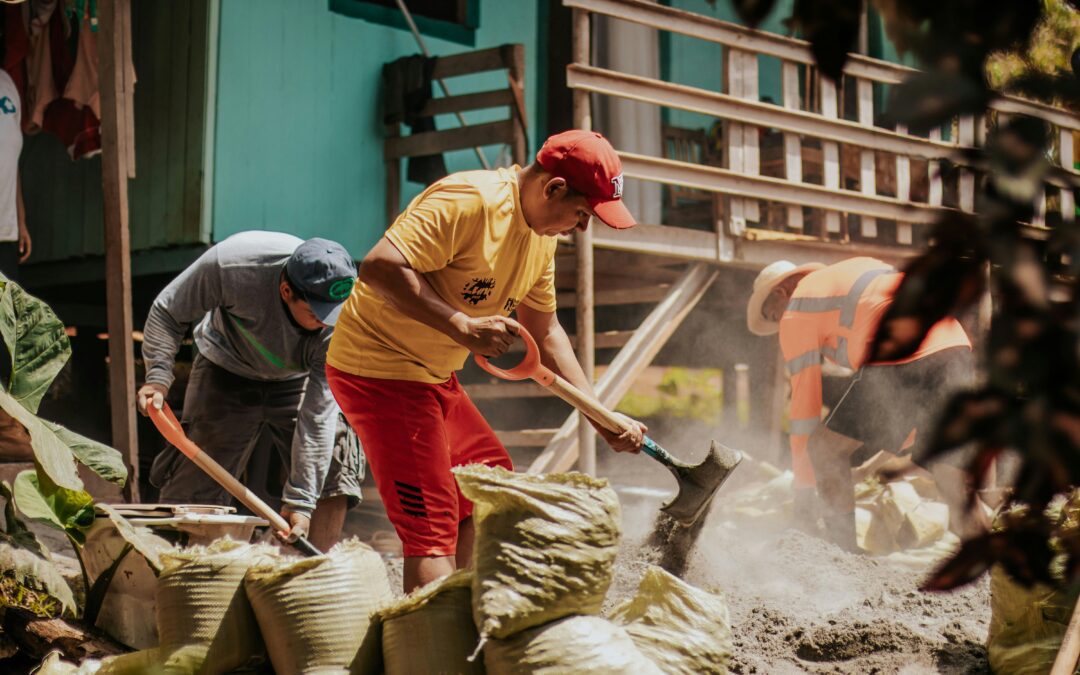A well-built deck can transform your backyard into a true extension of your home. But before you start imagining summer dinners or quiet evenings outside, you need to make one major decision — what type of material should you use?
In British Columbia’s damp coastal climate, choosing the right decking material is essential. It affects not just how your deck looks, but how long it lasts, how much it costs to maintain, and how often you’ll need to repair or replace it.
In this guide, we’ll walk you through the pros and cons of the three most popular options: wood, vinyl, and composite. Whether you’re building a new deck or resurfacing an old one, this comparison will help you make an informed decision.
Wood Decking: Classic and Natural
Wood is the traditional choice for decking and still a popular option for many homeowners. It offers a natural look and feel that complements outdoor spaces, especially in wooded or coastal settings.
Pros:
- Aesthetic appeal: Cedar and pressure-treated wood offer rich, warm tones and a natural texture that blends well with most landscapes.
- Customizable: Easy to cut, stain, and shape for custom designs or curved features.
- Lower initial cost: Especially for pressure-treated lumber, wood tends to have the lowest upfront price.
Cons:
- Ongoing maintenance: Requires regular cleaning, sealing, and sometimes staining or painting to prevent rot and weathering.
- Shorter lifespan: Even with maintenance, wood decks in BC’s wet climate are prone to rot, warping, and insect damage over time.
- Fading and cracking: Without consistent care, wood can lose its color and structural integrity.
Wood may be the right choice if you love its natural beauty and are willing to put in the work to maintain it. Cedar is a popular local option, offering better resistance to moisture than basic pressure-treated wood, but it still needs protection to last.
Vinyl Decking: Low-Maintenance and Waterproof
Vinyl decking, often installed as a fully waterproof membrane, is a popular choice for BC homeowners looking for durability and ease of care. It’s ideal for sundecks, second-storey decks, or anywhere that requires waterproofing below.
Pros:
- Waterproof surface: Vinyl membranes are completely sealed, protecting both the surface and the substructure beneath.
- Minimal maintenance: Just a quick rinse or occasional scrub is all that’s needed.
- Durability: Resistant to mold, mildew, and UV damage, making it well-suited for BC’s wet winters and hot summers.
- Clean appearance: Comes in a range of colors and textures to complement your home’s design.
Cons:
- Limited design flexibility: Vinyl decks generally have a uniform surface and don’t allow for as much customization in layout or shape.
- Can be slippery when wet: Although many vinyl options have textured surfaces, it’s important to choose a product with good traction.
- Heat retention: In direct sun, vinyl can become warm underfoot in the summer months.
Vinyl is an excellent choice if you want a waterproof, low-fuss option that’s built to last. It’s especially practical for upper-level decks where keeping the space below dry is a priority.
Composite Decking: Durable and Stylish
Composite decking combines wood fibers and recycled plastics to create boards that mimic the appearance of wood without the downsides. It’s growing in popularity thanks to its longevity and consistent appearance.
Pros:
- Low maintenance: No staining, sealing, or painting required. It resists fading, staining, and scratching.
- Longevity: Composite decking can last 25 years or more with minimal upkeep.
- Eco-friendly: Many brands use recycled materials, making this a sustainable choice.
- Consistent look: Boards are manufactured to be uniform, so your deck looks polished year after year.
Cons:
- Higher upfront cost: More expensive than wood or vinyl at the beginning, though long-term maintenance costs are lower.
- Heavier material: May require additional structural support compared to wood.
- Heat retention: Like vinyl, some composites can get hot in full sun unless you choose a light-colored option.
Composite decking is ideal for homeowners who want a long-lasting, attractive deck without ongoing maintenance. It works well for modern homes, larger entertainment spaces, or anyone looking for a worry-free backyard upgrade.
Which Material Is Best for BC?
Each material has its strengths, and the right choice depends on your specific needs, budget, and priorities.
- For a warm, classic look: Choose wood, especially cedar, if you’re willing to handle the upkeep.
- For total waterproofing and minimal care: Go with vinyl, especially for second-storey decks or rain-prone areas.
- For long-term durability with no maintenance: Composite is your best bet, especially if you want to invest in a premium finish that lasts.
Also consider how the deck fits with your home’s overall aesthetic. A modern composite deck might complement a new build, while a cedar deck could be perfect for a character home.
Other Considerations
Before finalizing your choice, think through these additional factors:
- Budget over time: A cheaper wood deck may cost more in the long run due to maintenance and potential repairs.
- Installation complexity: Some materials require special tools or expertise. Professional installation ensures longevity, especially for composite and vinyl.
- Local climate: Wet winters, UV exposure, and freeze-thaw cycles all take a toll. Make sure your chosen material is rated for BC’s conditions.
- Resale value: A well-maintained deck adds appeal to your home. Composite and vinyl often retain a cleaner, newer appearance over time.
The Final Word on Decking Materials
There’s no one-size-fits-all answer. Your ideal deck depends on how you use your space, your home’s style, and your comfort with ongoing care. A professional deck builder can help you weigh the options and choose a material that meets your goals — whether that’s beauty, performance, or peace of mind.
If you’re not sure where to start, All Hands On Deck is here to help. We’ve worked with homeowners across the Lower Mainland to design and build decks that suit their lifestyle and their budget. From wood and vinyl to composite brands like Trex or TimberTech, we’ll help you find the right fit.
Ready to talk materials? Contact us today for a free quote and expert advice on the best decking option for your BC home.



Recent Comments